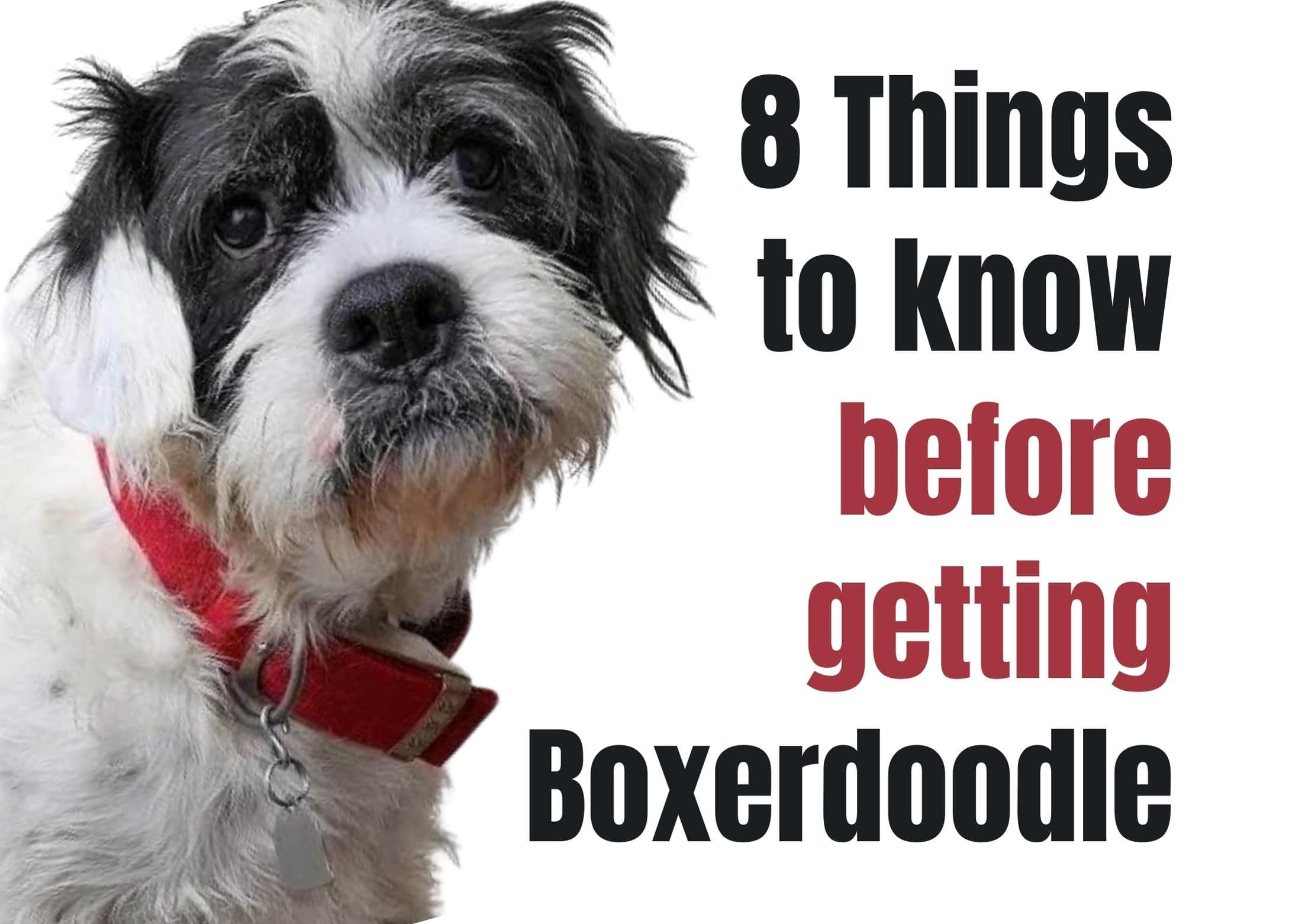Eight key facts about the Boxerdoodle

Thinking about getting a Boxerdoodle? This unique mix — part Boxer, part Poodle — can make a wonderful, athletic, intelligent companion, but it’s not a one-size-fits-all dog. I’ve spent time with several doodle mixes, and I can tell you: this one really keeps you on your toes.
Here’s what you need to know before bringing a Boxerdoodle home — the real stuff that matters when you’re living life with one of these energetic pups.
Boxerdoodles Are Big and Full of Energy
This isn’t a couch potato breed. Most Boxerdoodles come from a Standard Poodle and a Boxer, so we’re talking about a dog that can stand 15–25 inches tall and weigh anywhere from 40 to 70 pounds. They’re strong, athletic, and built for movement.
If you don’t have a fenced yard or time for daily exercise, you’ll run into trouble fast. These dogs need to move — long walks, dog park trips, hikes, playtime, swimming if they love it… it’s all part of their routine. Without it, expect restlessness and even destructive behavior.
I recommend at least two active sessions a day. If you’re an outdoorsy person, this breed will match your energy beautifully.
The Coat Can Be a Surprise
One of the biggest wild cards with a Boxerdoodle is the coat. Will your pup get the Poodle’s curly, low-shed hair or the Boxer’s short, shedding coat? Or something in between? You’ll usually get a good idea by 8 weeks, but even then, grooming needs can vary a lot.
If your dog leans Poodle, you’ll need to brush daily to prevent mats and make regular trips to the groomer. If it’s more Boxer, expect more shedding but less brushing.
Either way, grooming is part of the deal. There’s no truly “low-maintenance” version here.
Personalities Vary — Be Ready for Anything
Poodles are famously friendly and outgoing. Boxers? More protective and serious, especially with strangers. With a Boxerdoodle, you could get a social butterfly, a loyal watchdog, or something in the middle.
What you can count on is smarts. Both parent breeds are intelligent, so training comes naturally — but don’t skip obedience work. If your dog leans Boxer, you may see more independence or stubborn streaks, especially during adolescence. Early training really pays off.
Socialization Is Non-Negotiable
Because Boxers can be naturally wary, your Boxerdoodle needs solid socialization from day one. That means gentle, frequent exposure to other dogs, people, kids, and even household noises. Make it positive, make it consistent.
If you skip this, your dog might grow up anxious or reactive — especially around strangers. But when you do it right, Boxerdoodles can be gentle, affectionate, and great with kids and other pets. We’ve seen them thrive in family homes, as long as introductions are done properly and supervision is in place.
Health: Start With the Parents
Boxerdoodles are generally healthy, but like all breeds, they can inherit issues from either side — things like hip dysplasia, heart problems, and bloat are worth watching for. That’s why it’s so important to get your dog from a reputable breeder or rescue that shares health info openly.
Vet checkups, a good diet, and keeping your dog fit will go a long way. With the right care, many Boxerdoodles live 10–14 years, sometimes more.
So, Is the Boxerdoodle Right for You?
This mix isn’t for everyone. They’re active, smart, and sometimes a bit unpredictable in looks or temperament. But if you’re ready to give your dog the time, training, and energy it needs, a Boxerdoodle can be an amazing partner.
They’ll keep you moving, make you laugh, and be fiercely loyal. Just remember: this is a dog that needs you to show up fully, every day. If that’s your kind of challenge, the Boxerdoodle might be your perfect match.
